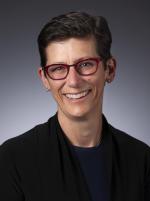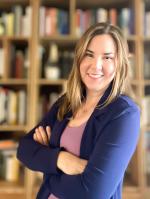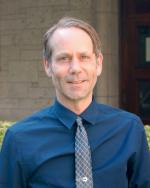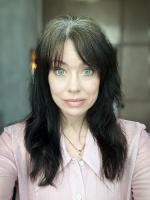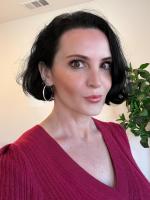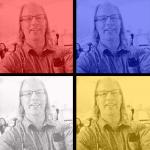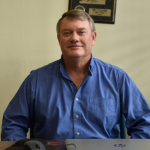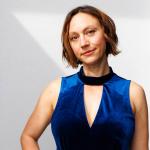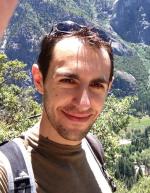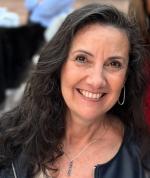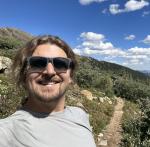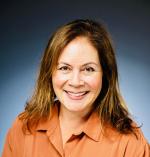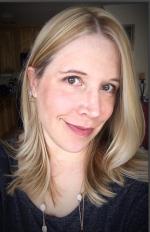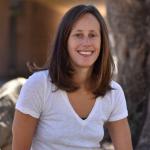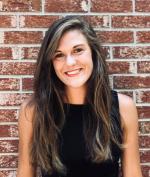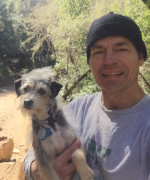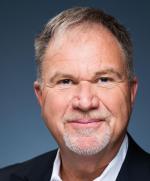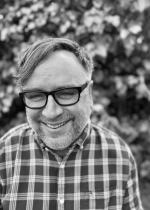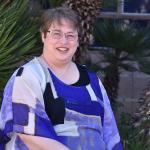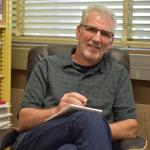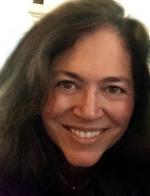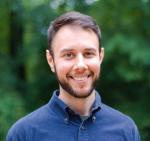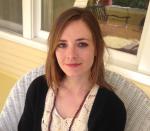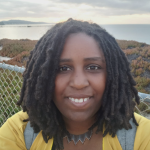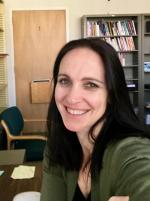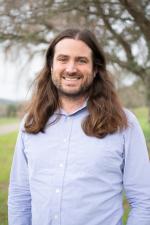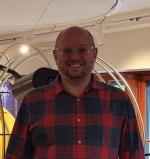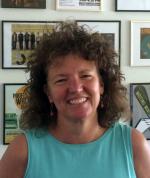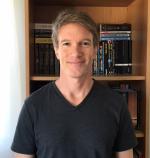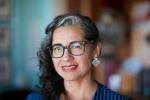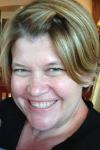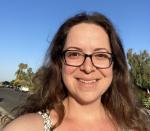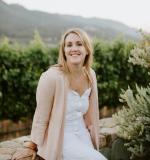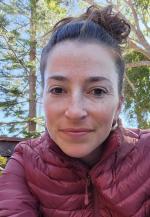Please note: For questions about add codes or courses, please contact the Writing Program Advisor at wpinfo@writing.ucsb.edu.
People
Associate Vice Chancellor of Teaching and Learning; Professor of Writing Studies
Katie Baillargeon teaches a range of academic writing courses, from lower-division Writing 1, 2, ACE, and 50, to upper-division 105s and 109s like Writing in the Humanities, Writing in the Social Sciences, and Rhetoric. She also teaches 107L—Legal Writing—in the professional writing series. Each summer, she runs UCSB's Dissertation Write-in for graduate students across the campus and she has recently expanded into faculty writing consultations and workshops. Her research interests are varied, and include graduate student writing, how dissertation boot camps aid student writers, food writing, and 17th-century French opera.
Eva Braunstein teaches Approaches to University Writing (Writing 1), Academic Writing (Writing 2), and Rhetoric and Writing (Writing 105R), among others. She completed her PhD in Religious Studies in 2021.
Matt Breece teaches Writing 2 and 50, the engineering sequence Writing 2E and 50E, 105M: Multimedia Writing, and 107T: Technical Writing. He has a PhD in Rhetoric and Writing from UT Austin. His research and teaching interests include multimodal pedagogy, technical communication, writing in the disciplines, accessibility and inclusive design, rhetorical theory, ethics, and digital rhetorics
Kara Mae Brown is an Associate Teaching Professor in both the Writing Program and the College of Creative Studies' Writing & Literature major, of which she is also the Program Coordinator. In the Writing Program, she teaches WRIT 105 C: Writing Creative Nonfiction, WRIT 105 SW: Science Writing for the Public, and WRIT 107 WC: Writing Web Content. In CCS, she teaches numerous course, including W&L CS 10: Introduction to Creative Writing and W&L CS 149: Writing in Nature: Exploring Santa Barbara's Coast, Valleys, and Sea.
- Continuing Lecturer
Rebecca Chenoweth teaches Writing 1, 2, 50, 105SW, and 109HP. She is also a founding editor of Synthesis, the Writing Program's Upper-Division publication of excellent student work.
Ljiljana Coklin teaches a variety of writing classes: Writing 50 (Academic Research), 109F (Film), 107G (Global Studies), 107B (Business Writing), and 109HU (Humanities). Her teaching and research interests focus on issues of migrations, border crossings, gender and citizenship in a contemporary global society and culture. She is also interested in the role of communication in international conflicts and its potential in peace initiatives. She is an avid reader of contemporary fiction.
Craig Cotich teaches Grammar and Stylistics, Professional Editing, Writing for the Teaching Professions, Business Writing, as well as a range of academic writing courses. Specializing in two areas within the UCSB Writing Program, he directs the Professional Editing track of the minor and chairs the ACE program.
Christene d’Anca has a PhD in Comparative Literature. She teaches a broad range of writing, literature, and rhetoric courses, with an emphasis on genre studies through multi-modal writing and presentation.
Her articles have appeared in the Journal of European Studies, Early Middle English, Romanische Forschungen, Journal of Animal Ethics, World Literature Today, EuropeNow, and Critical Insights, among others. She co-edited Cultural, Spatial, Political, Religious and Economic Relations Between Serbs and Romanians from the Early 18th Century to the 20th Century (Peter Lang, 2023) and published the monograph Medieval Mausoleums, Monuments, and Manuscripts: French Royal Women's Patronage from the 12th to the 14th Centuries (Brepols, 2024).
Chris Dean teaches Writing 1, Writing 2, Writing in Community (105CW), Rhetoric and Writing (105R), Multimedia Writing (105M), and Writing for the Teaching Professions (109ED).
Jim Donelan holds multiple appointments between the Writing Program, Department of English, and the College of Creative Studies - Writing & Literature Department, teaching a variety of composition and literary courses accross the curriculum at UCSB.
Brian Ernst teaches Writing 1, 2, 105CD, 105R, 107B, 107WC, 109HU, and 157B. His research interests include rhetorical code studies and narrative design in interactive media. He is also a Faculty Affiliate for the Center of Digital Games Research, an editor for Writing Spaces, a contributor to the CCCC Wikipedia Initiative, a mentor in the Raab Writing Fellows Program, Co-Director of the Professional Writing Minor Business Communication Track, and the Undergraduate Program Coordinator for the Writing Progam. Dr. Ernst completed his Ph.D. in Modern European History at the end of 2014 and joined the Writing Program faculty in 2018.
Feminist rhetoric, creative nonfiction, digital media and rhetoric
Daniel Frank teaches First Year Composition, multimedia, and technical writing. Dan’s research interests include AI Art and Writing technologies, game-based pedagogy, virtual text-spaces, passionate affinity spaces, and connected learning. Dan is continually interested in helping students find their own passion as they learn to create, play, and communicate research, argumentation, and writing, across genres, networks, and digital communities.
Along with business communication, Gina L. Genova, Esq. specializes in legal writing and public speaking after a 22-year business litigation career in Southern California. In the Professional Writing Minor Business Communication series, she teaches the winter capstone course on client communication (WRIT 157A) as well as the spring internship course (WRIT 150) and the elective, Advanced Writing for Public Speaking (WRIT 162). She continues to teach Writing for Public Speaking (WRIT 105PS), Business and Administrative Writing (WRIT 107B), Legal Writing (WRIT 107L) and two First Year Exploration seminars on Legal Practice (INT94 UA) and Law Enforcement (INT94 TF). Gina loves working with students and served as faculty advisor for Mock Trial, Moot Court, Pre-law Society, and its Undergraduate Law Journal for many years through spring of 2026. Her research interests range from the function and process of collaborative work in business spaces to the intersection, interference, and imposition of laws on the workplace environment.
Peter teaches Writing 2 and 105WE: Writing and Ethics. His teaching and research explores the politics of inequality and modern/postmodern literature. He is interested in the ways that political ideologies, cultural or institutional practices, and public policies underwrite or alleviate social and economic inequalities. In particular, he is interested in democratic theories and neoliberal forms of governance and subjectivity, as well as how they are represented in late 20th and 21st century film, literature, and journalism.
Baron Haber is new to the UCSB Writing Program and teaches Writing 1 and Writing 2 this year. His research interests include global Anglophone literature, environmental writing and ecocriticism, and science communication for the public. His scholarship on the environmental gothic has appeared in darkmatter and in ARIEL (forthcoming).
Leslie Hammer teaches Writing 1, Writing 2, Writing for Cultural Rhetorics (105CR), Writing for Chicanx Studies (109CS), Writing for the Humanities (109HU), Writing for the Social Sciences (109SS), and the ACE sequence. She received her Ph.D. in Literature from UC San Diego. Her research interests include nineteenth-century US Literature, multiethnic US literature, Native Hawaiian texts, US women's writing, transnational literature, and autobiography studies. She is the Chair of the Academic Communities of Excellence (ACE) Program and Writing 1 Committee.
Jeff Hanson teaches Writing for Public Speaking (105PS), Professional Writing for Global Careers (107G), and Business and Administrative Writing (107B), as well as graduate courses in the English for Multilingual Speakers Program / Linguistics.
Deborah Harris is a Continuing Lecturer in the Writing Program, and teaches a wide variety of classes (lower-division, upper-division, and graduate levels) ranging from science writing to writing in the humanities. Her book, Media and the Rhetoric of Body Perfection: Cosmetic Surgery, Weight Loss, and Beauty in Popular Culture (Routledge, 2014) explores the transformation imperatives advertised by the media, especially in the West. Her research interests include medical rhetoric, body rhetoric, popular culture, and composition.
Sarah Hirsch teaches Writing 1, 2, 107J, 107M, 109HU, and 109V. She received her Ph.D. in English from UC Santa Barbara with an emphasis on American literature and maritime culture. Her current research interests are visual rhetoric and New Orleans, as she is working on the visual representation of the "X Code." The "X" was spray painted on the homes and buildings by Urban Search and Rescue teams in the wake of Hurricane Katrina. Sarah's reserach focuses on the intepretation of these images and the reinterpretation and repurposing of them by New Orleans' residents. She is also working on visual, material and embodied rhetorics of the Mardi Gras Indians of New Orleans.
Victoria’s research and teaching are animated by her investments in building just, equitable, and communal frameworks for embodied life through the practice of writing. Her research interests center on cultural and feminist rhetorics with specific attention to gender, sexuality, reproductive justice, and trauma.
Peter Huk teaches a variety of writing classes, primarily the engineering writing sequence, Writing for Global Careers, Writing for Film, and Writing for the Humanities. His pedagogy and research interests include contemplative inquiry and reflection in the writing classroom and representation in documentary film.
Jennifer Johnson teaches Approaches to University Writing (Writing 1) and Academic Writing (Writing 2), as well as Rhetoric and Writing (105R), Writing for the Social Sciences (109SS), Writing for Accounting (107A), and Academic Writing: Theory and Practice (501). She holds a Ph.D. in Composition and TESOL from Indiana University of Pennsylvania. Her current research interests include the training and preparation of composition teachers, genre theory, disciplinarity, and the relationship between composition and literary studies.
Robert Krut teaches Writing 105C, 107B, and Writing 1-2 (in the ACE program), among other courses. In addition to his work in the Writing Program, he teaches creative writing and literature in the College of Creative Studies. He is the author of five books: Oh Oblivion (Codhill/SUNY Press, forthcoming), Watch Me Trick Ghosts (Codhill/SUNY Press, 2021), The Now Dark Sky, Setting Us All on Fire (Codhill/SUNY Press, 2019), which received the Codhill Poetry Award, This is the Ocean (Bona Fide Books, 2013) recipient of the Melissa Gregory Lanitis Poetry Prize, and The Spider Sermons (BlazeVox Books, 2009). His poetry has also appeared in numerous literary journals, both in print and online.
Karen Lunsford teaches Science Writing for the Public (105SW), Writing for the Health Professions (109HP), Writing for Science and Technology (109ST), Academic Research Writing (251), Teaching Technical Communication (252), the Proseminar for the Writing Studies Emphasis (502A/B), and Literacy in the Information Age (Education 202F).
Patrick McHugh teaches Writing 50 (Work in the 21st Century), and a number of 100-level courses including Business Writing and Creative Nonfiction.
Nomi Morris teaches Journalism and News Writing (107J), Magazine Writing for Publication (107M) and Advanced Beat Reporting (152A). She serves as director of the Journalism track in UC Santa Barbara’s Professional Writing Minor. Morris came to UCSB with a background in international journalism, as well as covering the arts and religion, and writing narrative nonfiction, essay, and commentary. Her work has been published in TIME, Newsweek, Los Angeles Times, Los Angeles Review of Books, Ascent and other media outlets and literary journals. She has been a foreign correspondent in Europe and the Middle East and holds an MFA in Creative Writing (Nonfiction).
Ellen O'Connell Whittet is a continuing lecturer who also teaches in the College of Creative Studies. She primarily teaches journalism, creative nonfiction, and writing for the visual arts, and her academic research focuses on arts writing, personal narrative, trauma-informed pedagogy, and creative writing studies. Her own writing has been published in Vogue, Time, The Cut, Buzzfeed, Vulture, The Paris Review, and elsewhere. Her memoir, What You Become in Flight (Melville House 2020), was named a best book of April by Refinery 29 and the Chicago Review. Her debut novel, Book of Hours, is forthcoming in 2026 from Dzanc Books.
Aili Pettersson Peeker teaches Writing 2 and Science Writing for the Public. She holds a PhD in English with an emphasis in Cognitive Science from UCSB. Her research interests are interdisciplinary and focus on bringing together cognitive neuroscience, literary studies, writing, and pedagogy. She is currently the Research Coordinator for the UCSB Trauma-Informed Pedagogy project.
Dr. Michelle Petty’s interdisciplinary research in Education and Writing draws on Black feminism to investigate diversity issues in academia, creative writing, and in digital writing. She teaches writing courses in the Writing Program and in the Writing and Literature Major of the College of Creative Studies.
Amy Propen teaches courses in rhetoric and professional writing, including Writing About Sustainability, Multimedia Writing, and Academic Writing. She earned her Ph.D. in Rhetoric and Scientific & Technical Communication from the University of Minnesota. She also holds a master’s degree in Technical and Professional Writing from Northeastern University in Boston, Massachusetts and a bachelor's degree in Geography from Clark University in Worcester, Massachusetts. Her research interests include visual, material, and environmental rhetorics.
- Continuing Lecturer
Kevin Rutherford teaches a variety of courses, including Writing 1E, 2, 2E, 50, 50E, 105C, 105CD, 105M, 105R, 107B, and 109F.
Bob Samuels teaches Writing for Public Discourse (105PD), Writing for the Social Sciences (109SS), Writing for the Teaching Professions (109ED), and Rhetoric and Writing (105R).
Beth teaches Approaches to University Writing (Writ 1), Academic Writing (Writ 2), Writing for the Teaching Professions (109ED), Rhetoric and Writing (105R), and Writing for the Humanities (109HU). She also teaches Theory and Practice of Writing Center Consultation (160) for those who are interested in tutoring writing. She has a PhD in Composition and Rhetoric from Miami University, and her research interests are focused on affect theory, pedagogy, and teacher development.
A graduate of UCSB’s PhD Program in Comparative Literature, John joined the Writing Program after defending his dissertation, Sonic Alterities, with distinction in August of 2022. John completed doctoral emphases in Writing Studies and Translation Studies and currently teaches Writing 2 and Writing 105. His Writing Studies capstone examined sound and the rhetoric of classroom space from antiquity to the virtual. An avid interdisciplinarian, John has also taught and designed courses in nuero-humanities, sound studies and African American music and literature.
Kenny Smith is co-chair of the Writing Placement Committee along with Madeleine Sorapure and Sarah Hirsch. He also teaches introductory composition (Writing 1 & 2), writing and the philosophy of language (Writing 105P), and scientific communication courses (Writing 109ST, Writing 105SW, and Writing 159A). His research focuses on how literacy skills transfer from the classroom to the outside world, particularly in regard to the interpretation of scientific texts and journalism. When not playing video games and reading all the things, he has been known to listen to a considerable amount of music, especially if it has synthesizers and a catchy beat.
Madeleine Sorapure teaches Multimedia Writing, Document Design and Production, Digital Portfolio, and Digital Storytelling. She is co-director of the Multimedia Communication track of the Professional Writing Minor and author of articles on the rhetoric of data visualization, multimodal composing and pedagogy published in Kairos, Computers and Composition, Big Data & Society, Journal of Business and Technical Communication, and elsewhere. She is also an associate dean in the Division of Undergraduate Education.
Amanda Stansell teaches Writing 2LK with Sociology, 109ED, 109CS, and the E sequence. She is also co-director of the Science Communication Track with the Professional Writing Minor.
Christian Thomas is a continuing lecturer in the Writing Program and the Associate Director of the Center for Digital Games Research. He teaches Rome: The Game (WRIT/ARTHI W6R), How Games Tell Stories (INT 36GS), Writing about Film (WRIT 109F), Multimedia Writing (WRIT 105M), Writing for Public Speaking (WRIT 105PS), Writing and the Research Process (WRIT 50), and Academic Writing (WRIT 2).
Lauren Vallicella teaches Writing 1, Writing 2, and Writing for the Humanities (109HU). A graduate of UCSB, Lauren participated in the doctoral emphasis in Writing Studies while completing her PhD in Theater and Dance. Her research interests include intersections between literature and dance in the early twentieth century, affect and empathy in the classroom, and choreography (writing with the body) as rhetoric.
Vickie Vértiz's writing is featured in the New York Times magazine, the Los Angeles Review of Books, KCET Departures, and the San Francisco Chronicle, among many others. Her book Palm Frond with Its Throat Cut won the 2018 PEN America literary prize in poetry. Vértiz teaches creative nonfiction, writing for Chicanx Studies. Her research interests include drag culture, feminist and queer art, film, and performance, experimental writing, and writing for community engagement. She earned an M.F.A. from UC-Riverside in nonfiction, a Master’s degree in public affairs from UT-Austin, and a B.A. in political science from Williams College.
Nicole Warwick teaches Writing 1, 2, 105R, and 109ED. She also serves as a TA Supervisor in the Writing Program. Her research treats graduate student experiences in TA preparation programs with additional interests that include narrative study, alternative rhetorics, and minor transnational theory.
Martha Webber teaches Writing 1, 2, 105PD, 107B, and 107WC for the program. She has a PhD in English with a specialization in Writing Studies from the University of Illinois at Urbana-Champaign (and even an AA in Fashion Design). Her research on nonprofit organizations and literacy sponsorship has been published in Reflections: A Journal of Community-Engaged Writing and Rhetoric. Her creative writing, including short humor, has appeared in journals including Slackjaw, Paper Darts, and Bending Genres.
Alison Williams primarily teaches media communications, including 107P, 105C, 107M, 107DJ, and 107V, as well as Writing 2. Alison comes to UCSB with a career in public relations and marketing for entertainment and advertising, and she holds an MFA Creative Writing and MA English from Chapman University. Her own writing has been published in literary, scholarly, and mainstream publications.
Kali Yamboliev teaches a range of academic writing courses, including lower-division courses like Writing 1, Writing 2, and Writing 50 and upper-division courses in the 105 and 107 series, including Writing for Business, Writing for Public Relations, Magazine Writing for Publication, and Science Writing for the Public. She has also worked in translation, editing, and publishing for the past ten years, and is currently a co-editor for Starting Lines, the Writing Program’s anthology of student writing. Her research interests center on the rhetorical strategies politicians, the media, and the public use to create ideas of ethnic and national belonging, with a focus on anti-immigrant rhetoric in Italy, both historical and contemporary.

